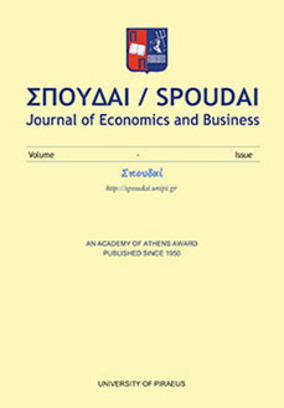Ex-dividend day price behaviour : a review of the issues
Part of : Σπουδαί : journal of economics and business ; Vol.50, No.1-2, 2000, pages 3-39
Issue:
Pages:
3-39
Abstract:
The aim of this paper is to review the literature relating to the ex-dividend day price behaviour of securities, for both the US and UK Stock Markets. Two major hypotheses have been developed that attempt to explain the cause and magnitude of the price drop-off, relative to the dividend, on the ex-dividend day. These are: (i) the long-term trading hypothesis, which argues that ex-day pricing reflects the marginal tax rates prevailing on that date, and (ii) the short-term trading hypothesis that argues that ex-day prices are determined by the arbitrage activity of short-term traders. Depending on who we assume to be the dominant trader around the ex-dividend day, we obtain different predictions about the ex-day price behaviour. There exists some further research, however, that suggests that both the above models offer an insufficient description of what in fact goes on on the ex-dividend day, because they ignore the existence of buying pressure both before and after the ex-day and risk considerations. The implications of the current UK tax regime on ex-day pricing will be examined, with particular reference to specific investor groups. In addition to this, we will consider how the institutional changes brought about by the Big Bang of 27th October 1986, might influence the ex-day price behaviour.
Subject (LC):
Notes:
Περιέχει πίνακες, παράρτημα και βιβλιογραφία




